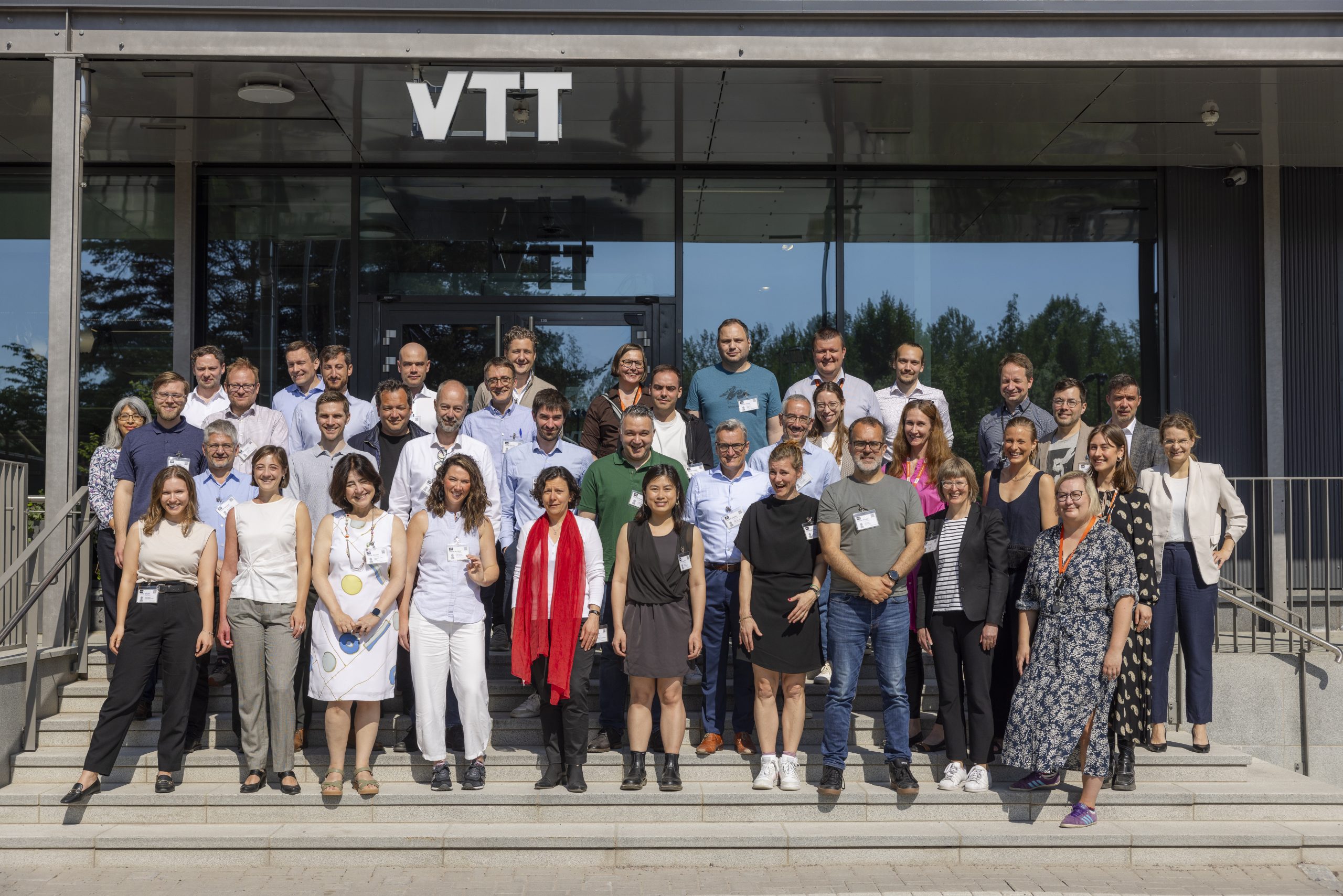
Futures of food and the role of food bioprocessing and biotechnology in making them more sustainable were discussed in November at EIT Food and VTT’s Slush side event. Being the theme for the EIT FAN Helsinki program in 2024, the cohort startups pitched their solutions to a full house bridging the gap between theory and practice.
The event was opened by Marja-Liisa Meurice, the director of the EIT Food North & East office. Following her opening remarks presenting opportunities EIT Food provides for startups in the agrifoodtech space, the stage was taken by the three panelists: Divya Murthy (Principal at Oyster Bay VC), Katariina Rommi (Senior Research Manager at Zafer Group), and Nemailla Bonturi (Co-founder of ÄIO).
To dive deep into the topic, the panel discussion addressed challenges and opportunities in the food biotechnology space from the perspectives of a startup founder, an investor, and an industry intrapreneur. To summarize the key contents, all three panelists agreed that biotechnology will play a crucial role in shaping the futures of food and improving the overall sustainability of the sector. According to Katariina, precision fermentation and cellular agriculture cannot not be considered “just trends” but integral elements of a sustainable and resilient food system.

Marja-Liisa Meurice, Director of the EIT Food North & East office
When talking of challenges, the panelists, and later the startups pitching, raised concerns regarding EU bureaucracy and lengthy, heavy approval processes. It is impossible for the European ecosystem to keep up with the development and encourage startups emerging on the continent to stay for there being a major bottleneck preventing market entry. With the current developments, the European market will stay far behind Asian and the US markets when it comes to innovation and introduction of novel food products.
On the opportunity front, the panelists noted that there are still a multitude of challenges to be solved providing a broad playing field particularly for aspiring entrepreneurs. Biotechnology in particular provides interesting opportunities when it comes to processing side streams and food waste into something of value. Also, the European space is rather cooperative that in the end benefits everyone underlining the importance of actors such as EIT Food.
As Divya Myrthy put it well, “the current food system takes a lot of resources and gives too little back”. Thus, the mission of all of us should be to “restore that balance and create a regenerative system that feeds both the planet and its people”.

Moderator (Aino Piirtola, VTT) and panelists: Divya Murthy (Oyster Bay VC) with the microphone, Nemailla Bonturi (ÄIO), and Katariina Rommi (Fazer Group) on the right
After the panel, the spotlight was cast on seven of the ten EIT FAN Helsinki 2024 cohort startups that pitched their novel biotech solutions to the audience. Pitching on stage we saw Melt&Marble, PFx Biotech, Senara, New Wave Biotech, Ironic Biotech, Esencia Foods, and KIDEMIS. While the startups themselves represent novel ideas and solutions to market opportunities, they also pinpointed a few challenges: scaling and regulation. For the successful growth of an early-stage company, external support and cooperation is key, that is also what EIT FAN as a program aims to provide.
Ending on a more wistful note, the event marked the end for the EIT FAN Helsinki program at VTT. After five years of running the program, the time has arrived to pass it along. In 2025, the program will be managed by the University of Helsinki and its Viikki Food Design Factory and focuses on circular solutions for the food system. More information on the program can be found on the EIT FAN website.

Mirva Lampinen (VTT) handing over the program to University of Helsinki and Mari Sandell (left) and Laura Forsman (middle)
Written by Aino Piirtola, Program Manager for EIT FAN Helsinki in 2024
All pictures taken by Tero Vuorinen

